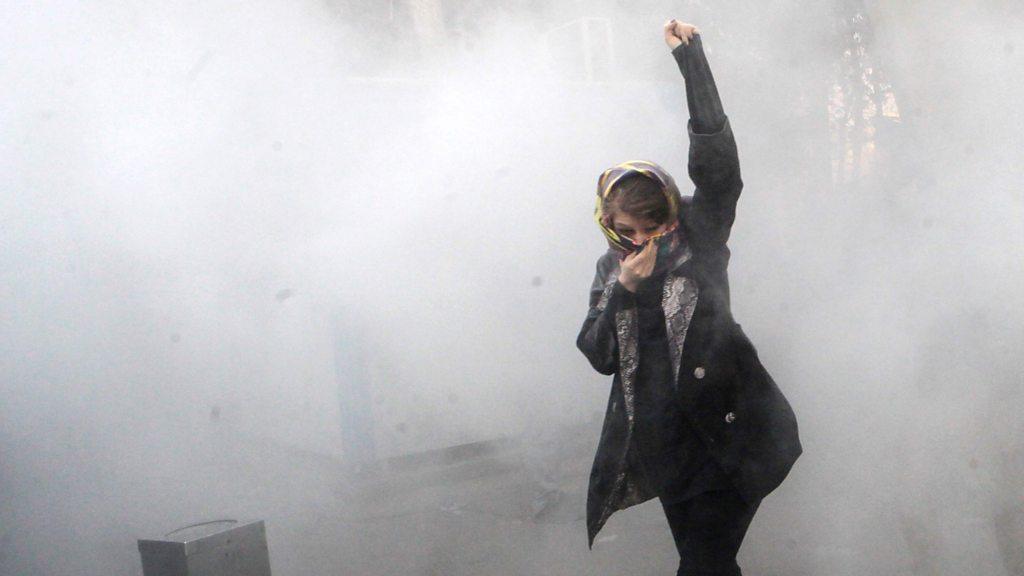Iran protests: Demonstrator, 22, dies in Tehran prison
- Published
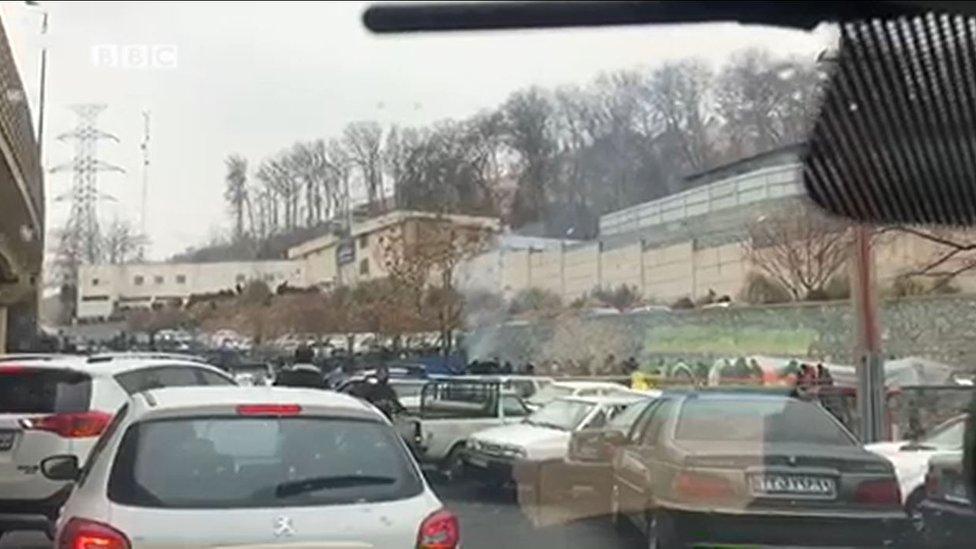
Relatives gather outside Evin prison in central Tehran to seek news of their loved ones
A 22-year-old man arrested during anti-government protests in Iran has died in Evin prison in the capital, Tehran, two Iranian MPs say.
They said they were informed that Sina Qanbari killed himself.
He was among more than 1,000 people arrested during demonstrations which swept Iran over the past two weeks.
At least 21 people were killed in the protests, which erupted over the state of the economy but spiralled into anger against the country's leadership.
Reformist MP Tayebeh Siavoshi said that she learned of the protester's suicide from officials in the intelligence ministry and security forces.
She was quoted by the Ilna news agency as saying he was 22, but did not name him.
On Monday, a group of Iranian social media users launched a campaign calling for clarity on the conditions that led to the death of the young protester, Ilna reports.
The authorities imposed restrictions on some social media platforms during the protests.
But on Monday, President Hassan Rouhani spoke out against permanent restrictions on access to social media, and criticised state media reporting of the protests.
He told a meeting with finance ministry officials on Monday that "access to cyberspace should not be cut permanently - you can't ignore the impact on people's lives and businesses".
The government has lifted restrictions it imposed on Instagram, one of the social media tools used to mobilise protesters. However access to the more widely used messaging app, Telegram, is still blocked, Reuters news agency reports.
The government had said the restrictions would be temporary.
President Rouhani also said "state-run media and other media outlets unfortunately ignored some of the fundamental issues behind these events and focused only on minor issues".
He said some of these issues were political and cultural, and denounced media attempts to cast the protests as purely economic as "misleading and insulting".
President Rouhani said paying attention to these fundamental issues would help "create stable and lasting security in our country". His remarks were published on his official website.
The unrest - the largest of its kind since a disputed presidential election in 2009 - initially began over price rises and corruption, but quickly spiralled into a wider display of animosity towards the government and ruling clerics.
Some reports put the number of people arrested since 28 December as high as 1,700.
Iran protests: Why people have taken to the streets
- Published7 January 2018
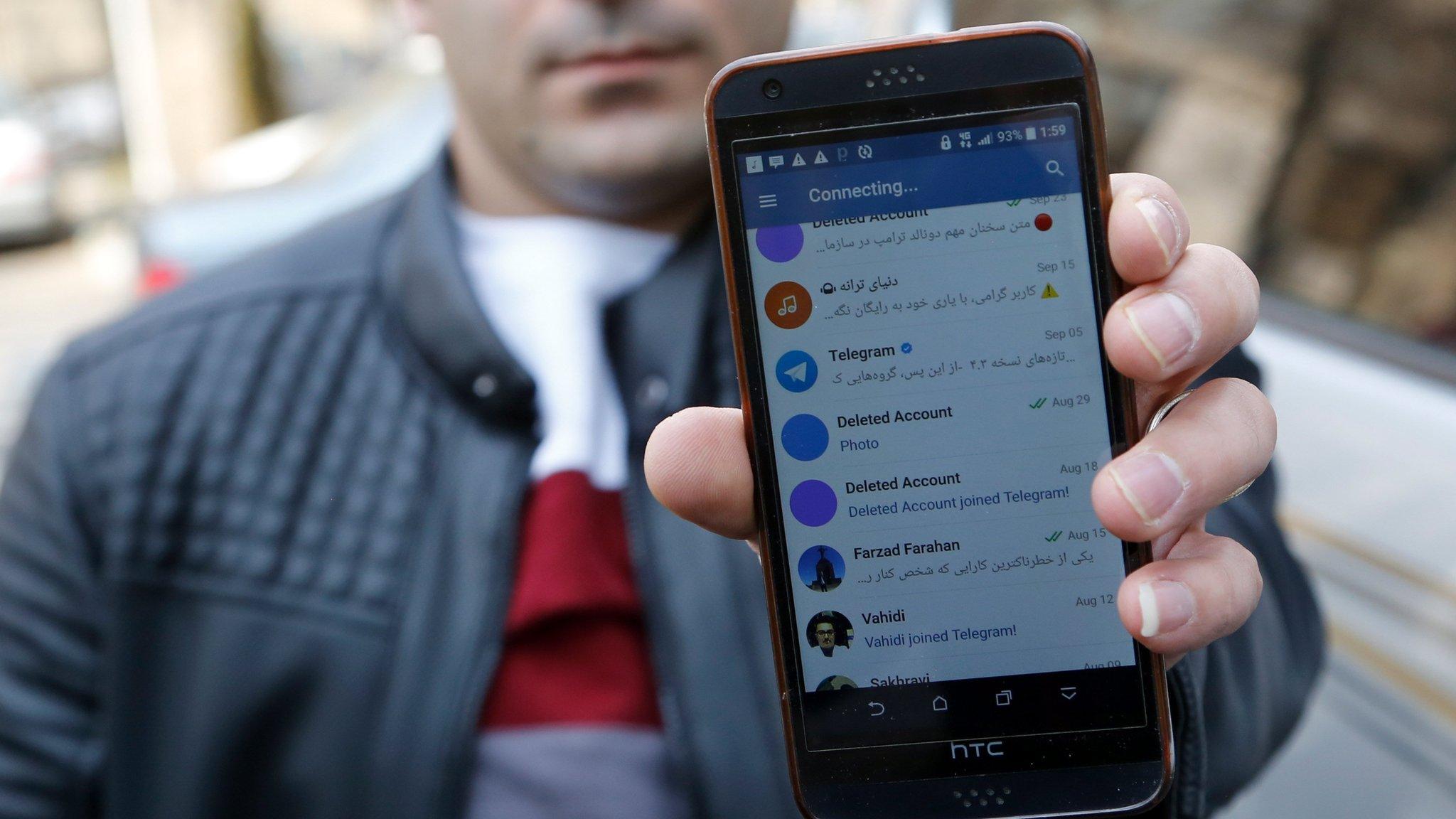
- Published6 January 2018
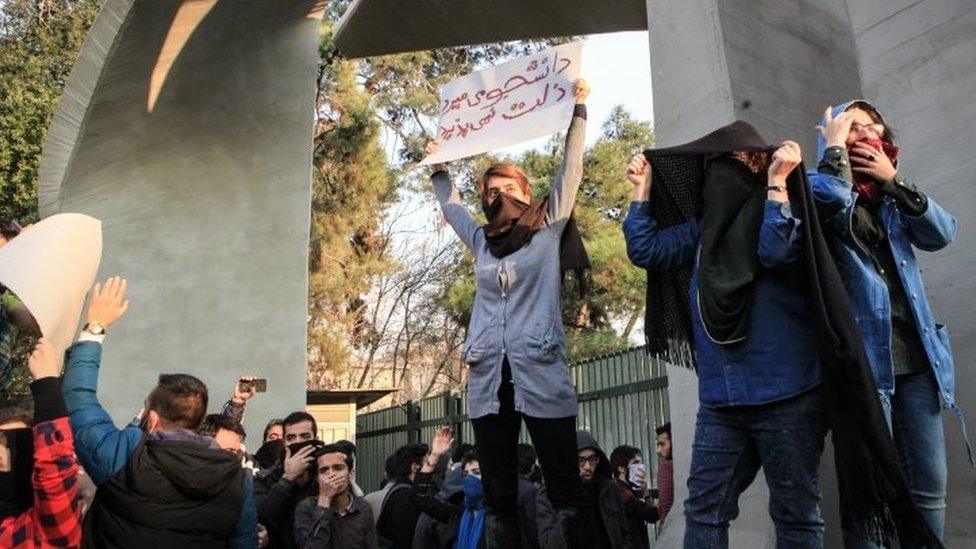
- Published4 January 2018
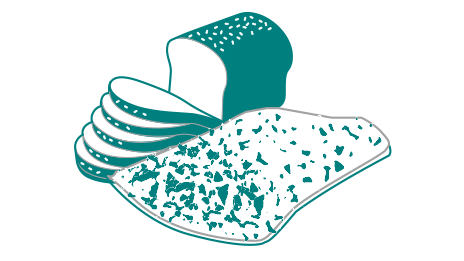
- Published4 January 2018
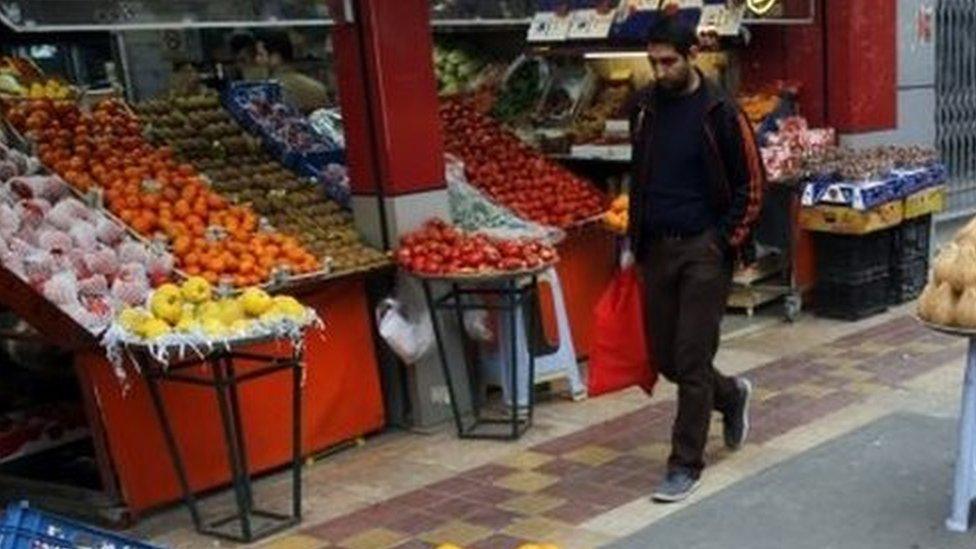
- Published3 January 2018
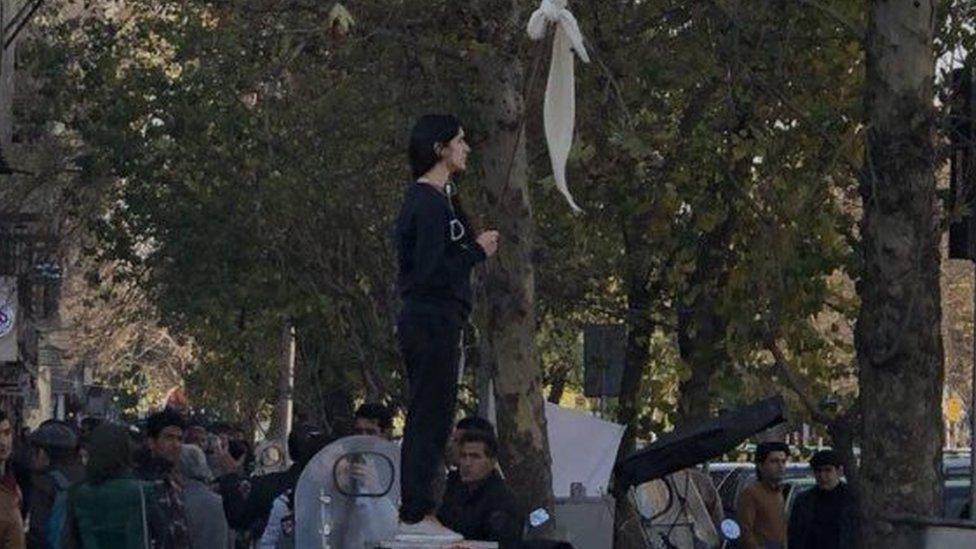
- Published3 January 2018
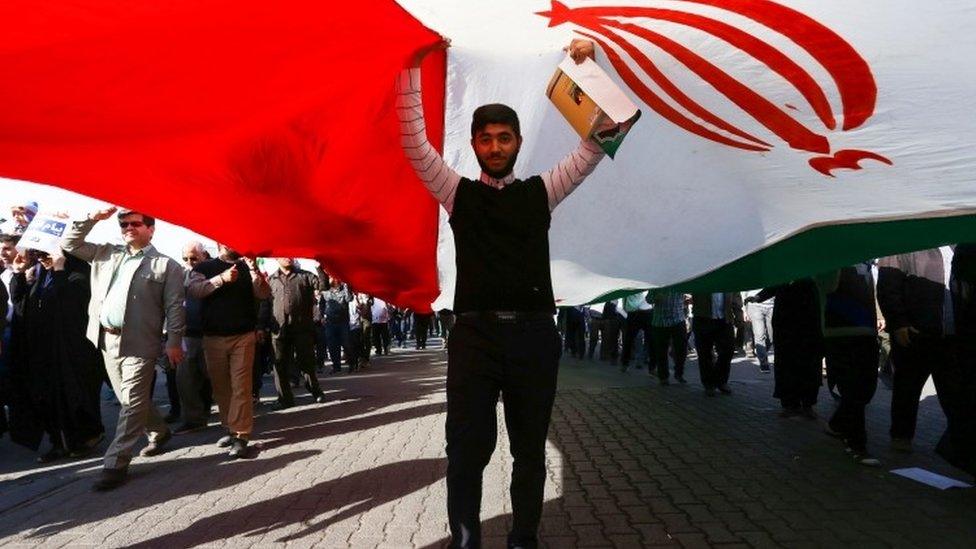
- Published2 January 2018
